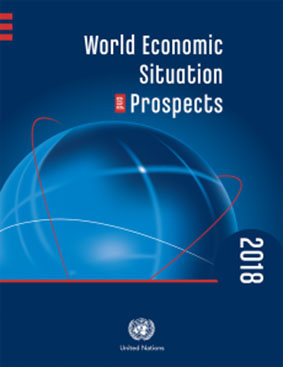The final report of the Economic Commission for Latin America (ECLAC) for 2018 places Guyana fifth in the region for economic growth in the hemisphere behind Dominica, the Dominican Republic, Panama and Antigua and Barbuda.
On a country level, the report, “The Preliminary Overview of the Economies of Latin America and the Caribbean 2018” says that Dominica is leading regional growth, with a nine per cent expansion, followed by the Dominican Republic (5.7 per cent), Panama (5.6 per cent), Antigua and Barbuda (4.7 per cent) and Guyana (4.6 per cent).
Worryingly, the Report points to further misery for an already beleaguered Venezuelan economy and says it will suffer a further contraction of around minus ten per cent, a blow that will further escalate the country’s out-of-control debt crisis and precipitate further migration from the Bolivarian Republic into neighbouring countries.
Whilst forecasting that economies in the region will grow by 2.1 per cent next year ECLAC warns that such growth will occur against the backdrop of a global economic scenario of “greater uncertainty.” The year ahead, it says, “looks to be a period in which global economic uncertainties, far from waning, will intensify and will arise from different fronts” and that these uncertainties will impact on growth in the economies of both Latin America and the Caribbean. On average, those economies are projected to expand by around 1.7 per cent, down from the 1.8 per cent which ECLAC had earlier projected.
ECLAC’s forecast is for growth in Central America, outside of Mexico, by 3.3 per cent next year whilst the South American economies are projected to grow by 1.4 per cent. Brazil and Mexico, the hemisphere’s two eoconmic giants, are seen growing at 2 per cent and 2.1 per cent, respectively.
Growth in the Caribbean, the ECLAC report says, will be attended by challenging times characterized by an economic scenario in the years ahead “in which less dynamic growth is expected, both for developed countries as well as emerging economies, along with increased volatility of international financial markets.” Structural weakening of international trade made worse by existing trade tensions between the United States and China will not make economic life easier for the hemisphere, the report adds.
ECLAC’s economic projections are attended by significant risks the greatest of which the report says is “an abrupt deterioration in the financial conditions for emerging economies.” Asserting that 2018 bared “a significant reduction in external financing flows” the report says that any “new episodes of deterioration in future financial conditions cannot be discounted” and that the consequences for countries in the hemisphere “will depend on how exposed they are in terms of their external financing needs and profiles.”
At the internal level ECLAC is calling for public policies by governments in the hemisphere “to strengthen sources of growth and cope with the scenario of uncertainty at the global level.”
The report quotes ECLAC Executive Secretary Alicia Barcena as calling for the bolstering of “the active role of fiscal policy in the region in terms of revenue spending,” pointing as well at the critical need to “reduce tax avoidance and evasion and illicit financial flows. At the same time, direct taxes and health-related and green taxes must be strengthened,” the top ECLAC official is quoted as saying.
In advocating growth stabilization and invigorating measures Barcena is urging that economies in the hemisphere undertake reorientation towards projects that impact sustainable development with emphasis on public-private partnerships and on productive, new technologies and green investment. “All of this,” Barcena says, “while protecting social spending, above all in periods of economic deceleration so that it is not affected by cutbacks.”






